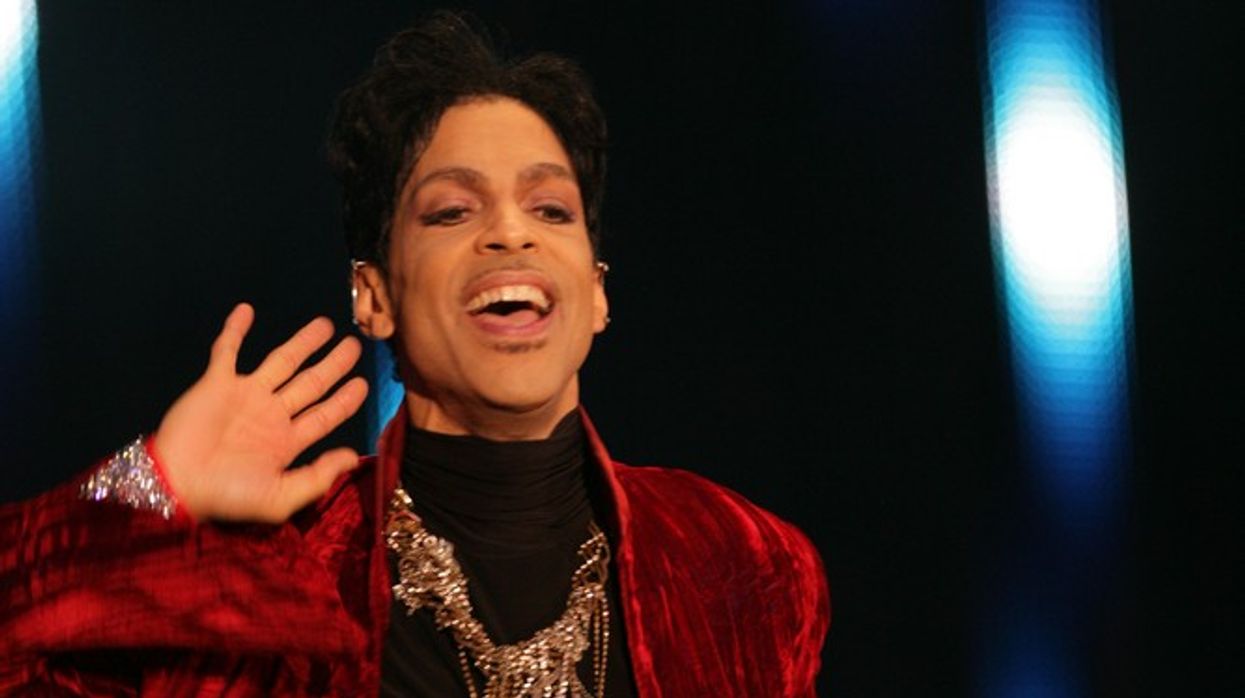Here's the Cinematic Legacy of Prince You May Not Be Aware Of
Prince's legacy in movies is, in its own way, just as influential as that of his music.

The world was shocked today by Prince's death at the age of 57. Though he's mostly known as a musician, Prince also left an impressive mark on musical cinema.
With his debut feature, 1984's Purple Rain, the man born Prince Rogers Nelson in 1958 cemented his myth on celluloid and earned an Academy Award for Best Music, Original Song Score (an award now known as Best Original Song):
What made Purple Rain cinematically revolutionary was its "reboot" of the musical for the MTV-age.
The film was revolutionary, and not just because of the androgynous sexuality and racial groundbreaking of its star. In the traditional movie "musical," starting with Al Jolson's The Jazz Singer, the performers either sang to each other or into the camera, breaking the fourth wall and directing their songs to the audience.
What made Purple Rain cinematically revolutionary was its "reboot" of the musical for the MTV-age. The film is a fictionalized, semi-autobiographical portrait of Prince (or, rather, his myth).
As The Kid, Prince stars as a young Minneapolis musician struggling to make it in the competitive club scene. Many of the most famous scenes are performance clips, where Prince is essentially in concert. (Widely known for his opposition to YouTube, Prince kept most of his catalogue off the site, including scenes from the film.)
Purple Rain was the first of three films in which he starred, though the only one he did not direct.
In 1986, Prince made his debut behind the camera with the wildly weird and off-kilter Under the Cherry Moon. A period piece—though the period itself is unclear—set on the French Riviera, the black and white feature focuses on the efforts of Prince's gigolo character, Christopher Tracy, as he cons a young heiress out of her fortune with the help of his manservant, Tricky, played by former Time member Jerome Benton (also famously known for holding Morris Day's mirror on stage).
Prince released an astonishing 136 music videos, directing or co-directing 34.
Of course, Prince meets his match, falls in love, and hijinx ensue. What's fascinating about the film is that, like it or not, it's undeniably original. It proved that Prince, while probably a better musician than auteur, was no slouch at directing.
While the film was a critical and commercial flop, the accompanying soundtrack album Parade is considered one of his best and continued the stripped-down, bass-less funk of Purple Rain's "When Doves Cry" with the hit single "Kiss", a song he had originally given to one of his many protégée bands, an outfit called Mazarati. When Prince heard their recording of the song, he declared it far too good for them and took it back for himself.
1990's Graffiti Bridge, a sequel of sorts to Purple Rain, would be the last feature film directed by Prince.
Though Purple Rain, today an acknowledged classic, won several "Razzie" awards at the time, its music won an Oscar and the film cemented Prince's iconic status.
It was also a direct inspiration for Eminem's 8 Mile, an almost beat-for-beat (angry young man, dysfunctional home, a mediocre musical scene that refuses to recognize his genius until the triumphant end) retelling of a story that won Eminem an Oscar for Best Original Song.
In addition to his films, Prince released an astonishing 136 music videos, directing or co-directing 34, including clips for classics like "Raspberry Beret."
With the death of David Bowie in January, 2016 has already seen the loss of two iconoclastic, utterly unique performers, both of whom used both film and, crucially, the medium of MTV, to get their messages across. Incidentally, both were incredible live performers, as this clip from Prince's debut appearance on a 1981 episode of Saturday Night Live should attest.
RIP Prince Rogers Nelson, 1958-2016.
Featured article photo courtesy of Northfoto / Shutterstock.com">Northfoto / Shutterstock











